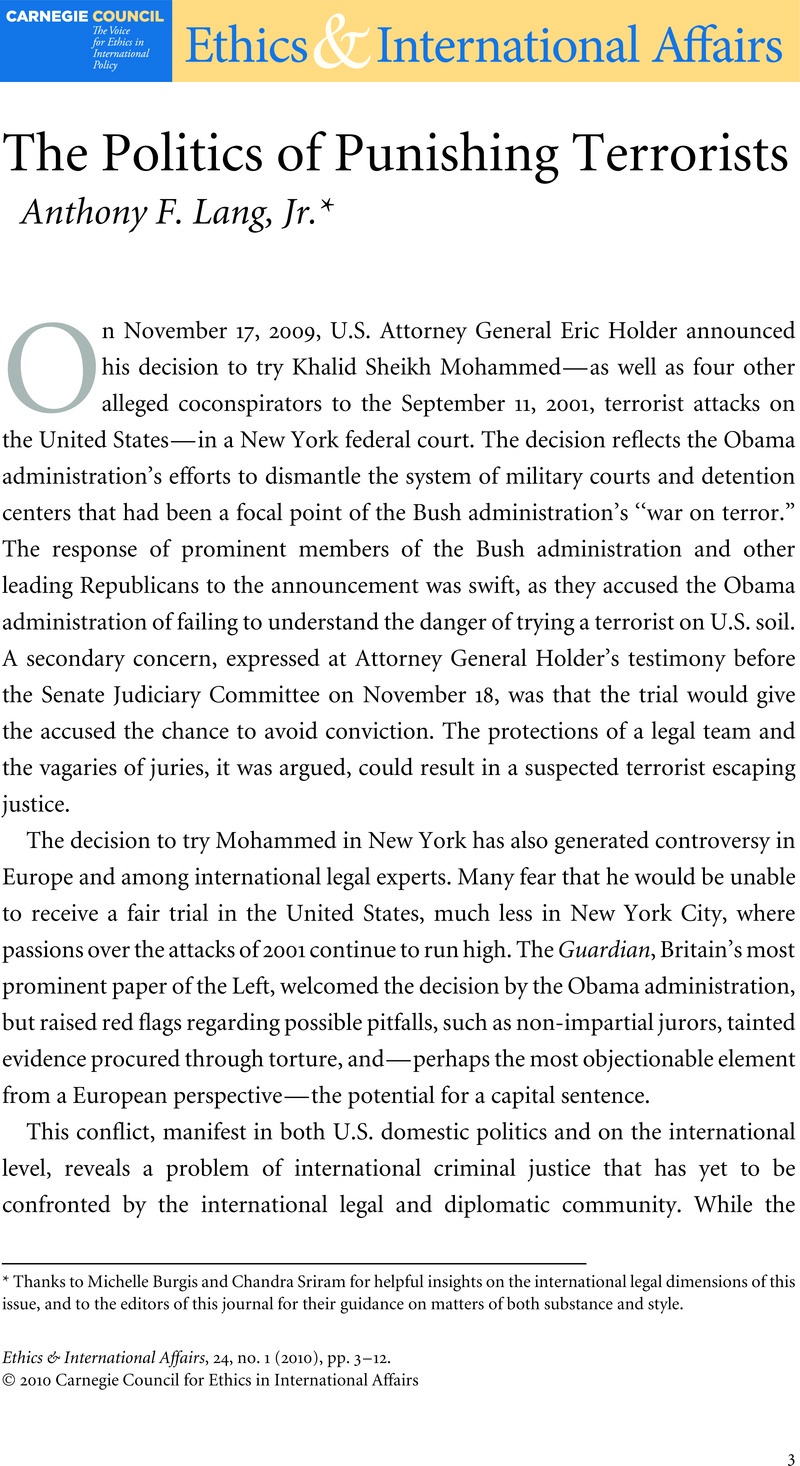Published online by Cambridge University Press: 25 March 2011

1 See Anthony F. Lang, Jr., Punishment, Justice and International Relations: Ethics and Order after the Cold War (London: Routledge, 2008), for a development of this point.
2 There have been some important critiques of this law, specifically because it often ignores the political ramifications of how these courts function; see, for instance, Adam Branch, “Uganda's Civil War and the Politics of ICC Intervention,” Ethics & International Affairs 21, no. 2 (2007), pp. 179–98. Others have argued that these courts and tribunals are not going far enough in pushing forward this agenda; here, see Rajan Menon, “Pious Words, Puny Deeds: The ‘International Community’ and Mass Atrocities,” Ethics & International Affairs 23, no. 3 (2009), pp. 235–45.
3 Mark A. Drumbl, Atrocity, Punishment, and International Law (Cambridge: Cambridge University Press, 2007).
4 Darryl Robinson, “The Identity Crisis of International Criminal Law,” Leiden Journal of International Law 21 (2008), pp. 925–63.
5 Although some international lawyers have argued that terrorism can be included in international criminal law; see Antonio Cassese, International Criminal Law, 2nd ed. (New York: Oxford University Press, 2008), pp. 162–86.
6 See “Timeline: Lockerbie Bombing” at the BBC website for an overview of the Lockerbie decision; available at news.bbc.co.uk/1/hi/scotland/6236538.stm.
7 Al-Megrahi is still alive and living in Libya—five months after his release. Debate continues to swirl around the decision to release Al-Megrahi in Scotland, where some have argued that the medical advice upon which the release was based was faulty and that the Scottish authorities did not consult widely enough in determining the nature of al-Megrahi's illness. For more, see http:\\www.news.scotsman.com/politics/Report-to-slate-MacAskill-over.5894531.jp.
8 Mandela came out in favor of al-Megrahi's release in a letter he sent to the Scottish First Minister; see news.bbc.co.uk/1/hi/scotland/8229338.stm.
10 Under the devolution process, Scotland has its own parliament and legal system, with many of the powers previously held by the UK government as a whole now the responsibility of the Scots. The election of a Scottish Nationalist Party–led government in Scotland two years ago has further distanced Scotland's political and legal culture from the rest of the United Kingdom.
11 Al-Megrahi had been pursuing an appeals process, based on his assertion that the evidence used to convict him was suspect, something that an increasing number of legal commentators in the United Kingdom seemed to accept. This appeal process was dropped, however, when he appealed for compassionate release. See http:\\www.scotland.gov.uk/News/This-Week/Speeches/Safer-and-stronger/lockerbiedecision.
13 See Judith Shklar, Legalism: Law, Morals, and Political Trials (Cambridge, Mass.: Harvard University Press, 1964).